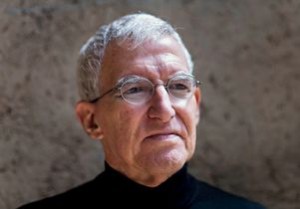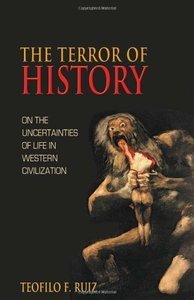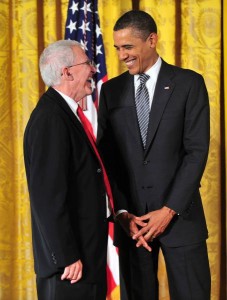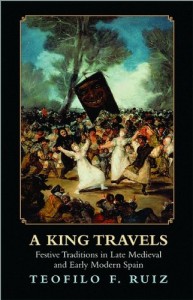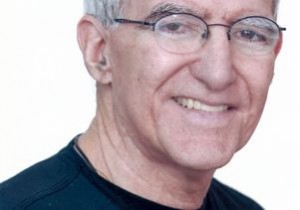 Teofilo F. Ruiz (born 1943) is a Cuban-American medieval historian and professor, currently at University of California, Los Angeles (UCLA).
Teofilo F. Ruiz (born 1943) is a Cuban-American medieval historian and professor, currently at University of California, Los Angeles (UCLA).
Born in Cuba, born into a middle-class Cuban family, he was on the path to become a lawyer like his father—then the revolution intervened. Ruiz was active during the Cuban Revolution. At age of 17, he fought against the regime of Fulgencio Batista joining the uprising against dictator Fulgencio Batista. The new Castro regime that came to power in 1959 didn’t suit his sensibilities either, and in the run-up to the Bay of Pigs invasion, Ruiz found himself in jail. Following his release, his family decided that a sojourn in the United States would be in his best interest.
In 1961, Ruiz left Cuba for Miami with “only three changes of clothing, $45, a box of Cuban cigars to sell and a Spanish translation of Jacob Burckhardt’s A History of Greek Civilization.” By 1962, Ruiz and two cousins moved from Miami to New York City. After spending a few months in Miami, where he painted hotel rooms to make money, Ruiz headed north to New York City. During the day, he worked at the Continental Can factory; at night, he went to school tuition-free at City College of New York.
A class on the Middle Ages rekindled his love of the era, and a master’s degree in history from New York University soon followed. Ruiz considered teaching high school, but one of his mentors steered him a different way. “He said, ‘Teo, this is crazy. Your accent is pronounced. You have to go and get a PhD and teach at the university where it does not matter.’” He worked at various jobs including as a taxi driver for one year. Despite many obstacles, Ruiz finished his dissertation in the Graduate School of Princeton University by 1974.
Professional background.
Ruiz was a student of American medievalist Joseph R. Strayer and received his Ph.D. from Princeton University in 1974. He has taught at Brooklyn College, the CUNY Graduate Center, the University of Michigan, Michigan State University, the École des Hautes Études en Sciences Sociales and Princeton University—as 250th Anniversary Visiting Professor for Distinguished Teaching—before going to UCLA in July 1998.
In 1994 he was selected by the Carnegie Foundation as one of the four Outstanding Teachers of the Year in the United States. He served as chair of the UCLA Department of History from 2002-2005. He has lectured in the USA, Spain, Italy, France, England, Mexico, Brazil and Argentina.
In 2007, Ruiz was awarded a Guggenheim Fellowship for his project on festivals, rituals, and power in late medieval and early modern Spain.
Ruiz’s scholarship has been recognized with fellowships from Mellon, Guggenheim, and NEH. He was also elected vice president of the American Historical Association’s Research Division, serving from 2005–2008.
In 2008, Ruiz was named chair of the UCLA Department of Spanish and Portuguese.
On February 13, 2012 President Barack Obama awarded Ruiz the 2011 National Humanities Medal at the White House.
He has published many books as well as dozens of articles in scholarly journals as well as reviews and smaller articles.
His most recent book, The Terror of History: On the Uncertainties of Life in Western Civilization, sprang from a popular class that Ruiz teaches at UCLA on mysticism, heresy, and witchcraft in medieval and early modern Europe. Reaction to the book has been mixed, and Ruiz acknowledges its tone can be a bit pessimistic. “Some of my skeptical points of view about the world came out—and I was not sure that I wanted to share that with people I don’t know.”
Ruiz has also earned accolades for his teaching, including being named U.S. professor of the year by the Carnegie Foundation for the Advancement of Teaching in 1995 and receiving UCLA’s Distinguished Teacher Award in 2008. He describes his teaching style as “frantic, hectic.” As a graduate student, Ruiz admired professors like Carl Schorske, who could deliver an elegant well-crafted lecture from behind a podium. “I can’t do that. It’s not in my abilities,” he says. “I engage the students by combining the personal with the scholarly.”
He also doesn’t use notes. “I can’t explain how it happens. I walk into the classroom. I am in an absolute panic even after thirty-nine years of doing this. And then something possesses me for one hour and fifteen minutes and I cannot stop. I am like the Energizer Bunny.”
Works.
Medieval Europe and the World : From Late Antiquity to Modernity, 400-1500 (2005) ISBN 0-19-515693-5
From Heaven to Earth: The Reordering of Castilian Society in the Late Middle Ages (2004) ISBN 0-691-00121-9
Spanish Society, 1400-1600 (Social History of Europe) (2002) ISBN 0-582-28691-3
Crisis and Continuity: Land and Town in Late Medieval Castile (1994) ISBN 0-8122-3228-3
The City and the Realm: Burgos and Castile 1080-1492 (1992) ISBN 0-86078-329-4
Medieval Spain, 711-1492 ISBN 1-57524-052-1
Medieval Europe: Crisis and Renewal. Course No. 863 The Teaching Company ISBN 1-56585-710-0
The Terror of History: Mystics, Heretics, and Witches in the Western Tradition. Course No. 893 The Teaching Company, 2002
Other 1492: Ferdinand, Isabella, and the Making of an Empire. Course No. 899 The Teaching Company
Agencies/Various/Wiki/InternetPhotos/youtube/thecubanhistory.com
The Cuban History, Hollywood.
Arnoldo Varona, Editor.



 Dr. Teofilo F. Ruiz, historian, professor. (born in Havana) ** Dr. Teofilo F. Ruiz, historiador, profesor.
Dr. Teofilo F. Ruiz, historian, professor. (born in Havana) ** Dr. Teofilo F. Ruiz, historiador, profesor.